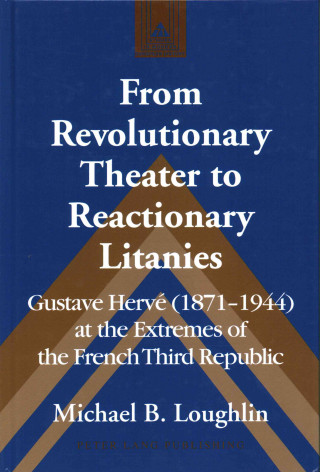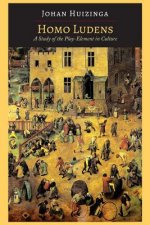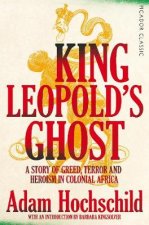
Kód: 13785777
From Revolutionary Theater to Reactionary Litanies
Autor Michael B. Loughlin
Gustave Hervé (1871-1944) seemed to have traditional Breton roots and a typical republican education. As a young socialist journalist and professor, he gained notoriety following a 1901 article which appeared to plant the tricolor ... celý popis
- Jazyk:
 Angličtina
Angličtina - Väzba: Pevná
- Počet strán: 880
Nakladateľ: Peter Lang Publishing Inc, 2016
- Viac informácií o knihe

Mohlo by sa vám tiež páčiť
-

Low Bird
19.42 € -

Dungeons & Dragons: The Legend of Drizzt Volume 6 - The Halfling's Gem
19.93 € -6 % -

Berlioz and Debussy: Sources, Contexts and Legacies
75.48 € -

Adaptation for Animation
69.41 €
Darujte túto knihu ešte dnes
- Objednajte knihu a vyberte Zaslať ako darček.
- Obratom obdržíte darovací poukaz na knihu, ktorý môžete ihneď odovzdať obdarovanému.
- Knihu zašleme na adresu obdarovaného, o nič sa nestaráte.
Viac informácií o knihe From Revolutionary Theater to Reactionary Litanies
Nákupom získate 578 bodov
 Anotácia knihy
Anotácia knihy
Gustave Hervé (1871-1944) seemed to have traditional Breton roots and a typical republican education. As a young socialist journalist and professor, he gained notoriety following a 1901 article which appeared to plant the tricolor in a dung pile. When French socialists unified in 1905, the Hervéistes were an influential minority. The antimilitarist movement called Hervéism gradually emerged as a quixotic crusade to unite revolutionaries against war and for socialism. Hervé soon founded a weekly newspaper, La Guerre Sociale. Over the next six years, press campaigns, trials, prison, demonstrations, strikes, and conspiratorial organizations maintained Hervé's profile and sold newspapers. Ironically, Hervé advertised conspiracies, which suggests revolutionary theater more than practical politics. Among Hervé's rivals, such theatrics often generated resentment. While Hervé's movement succeeded as a media experience, his leftist competitors became jealous and skeptical. As revolutionary theater Hervéism might have been entertaining, but the actors and some of the audience often confused revolutionary art with political reality. By 1911 the ingenuous Hervé felt betrayed. His failure to unite revolutionaries began an evolution toward the nation and its traditional Catholic faith. Besides the international situation, one crucial determinant in Hervé's evolution toward French national socialism sympathetic to fascism involved ongoing rivalries within the French Left. Hervé's marginal interwar national socialist parties sought to employ patriotism and religion to solve French problems. By 1935 he attempted to draft Pétain to lead an authoritarian republic. Gradually losing hope in Pétain after the fall of France, the aging Hervé put his faith in Christian socialism.
 Parametre knihy
Parametre knihy
Zaradenie knihy Knihy po anglicky Humanities History History: earliest times to present day
231.13 €
- Celý názov: From Revolutionary Theater to Reactionary Litanies
- Autor: Michael B. Loughlin
- Jazyk:
 Angličtina
Angličtina - Väzba: Pevná
- Počet strán: 880
- EAN: 9781433131004
- ISBN: 1433131005
- ID: 13785777
- Nakladateľ: Peter Lang Publishing Inc
- Hmotnosť: 1904 g
- Rozmery: 158 × 230 × 68 mm
- Dátum vydania: 04. July 2016
Obľúbené z iného súdka
-

Learn to Read Ancient Sumerian
31.77 € -

Russian Journal
14.26 € -23 % -

King's Two Bodies
28.63 € -7 % -

Heart of Europe
20.63 € -23 % -

Armies of Castile and Aragon 1370-1516
17.70 € -4 % -

One Hell of a Gamble
27.01 € -17 % -

Rise and Fall of Ancient Egypt
18.51 € -23 % -

Guns, Germs, and Steel
17.09 € -

The Origins of Totalitarianism
10.41 € -22 % -

Illustrated Encyclopedia of Uniforms of World War I
21.75 € -23 % -

The Art of Combat
35.31 € -

On Tyranny
10.11 € -24 % -

Homo Ludens
12.03 € -

Tuesdays With Morrie
10.11 € -24 % -

History of the Decline and Fall of the Roman Empire
14.26 € -23 % -

King Leopold's Ghost
13.25 € -16 % -

Meditations
9 € -19 % -

Streams of Gold, Rivers of Blood
36.32 € -

Travels of Ibn Battutah
13.85 € -12 % -

Augustus
16.38 € -23 % -

Age Of Capital
16.38 € -23 % -

Egyptian Book of the Dead: The Book of Going Forth by Day : The Complete Papyrus of Ani Featuring Integrated Text and Full-Color Images (History ... M
32.37 € -9 % -

Deng Xiaoping and the Transformation of China
32.78 € -

Age Of Extremes
17.19 € -20 % -

John Skylitzes: A Synopsis of Byzantine History, 811-1057
38.04 € -16 % -

Arms and Armour of Late Medieval Europe
11.02 € -23 % -

Alexander the Great
16.99 € -19 % -

End of Days
8.29 € -19 % -

Shake Hands With The Devil
14.16 € -15 % -

Complete Roman Army
21.75 € -23 % -

Distant Mirror
14.26 € -23 % -

Fall of the Roman Empire
25.90 € -

Fifties
19.42 € -15 % -

After the Ice
18.51 € -23 % -

Histories
5.96 € -19 % -

Savage Continent
16.38 € -23 % -

Oxford IB Diploma Programme: The Cold War: Superpower Tensions and Rivalries Course Companion
52.41 € -

Age Of Empire
16.38 € -23 % -

Pompeii
12.13 € -23 % -

Life in a Cave
7.07 € -4 % -

Oxford Illustrated History of Prehistoric Europe
34.90 € -20 % -

On the Ocean
39.56 € -7 % -

Flowers of Battle The Complete Martial Works of Fiore dei Liberi Vol 1
139.65 € -

On Ancient Warfare
42.90 € -1 % -

Access to History for the IB Diploma: Causes and effects of 20th-century wars Second Edition
38.95 € -

Safe Area Gorazde
20.63 € -23 % -

Yoga Body
18.71 € -10 % -

Fear and Loathing on the Campaign Trail '72
14.26 € -23 % -

Fall of Carthage
16.38 € -23 %
Osobný odber Bratislava a 2642 dalších
Copyright ©2008-24 najlacnejsie-knihy.sk Všetky práva vyhradenéSúkromieCookies



 21 miliónov titulov
21 miliónov titulov Vrátenie do mesiaca
Vrátenie do mesiaca 02/210 210 99 (8-15.30h)
02/210 210 99 (8-15.30h)